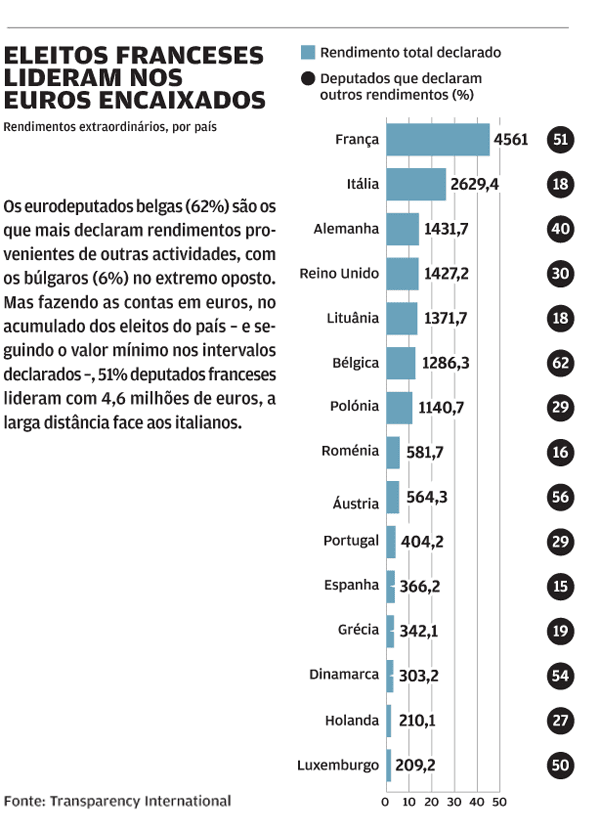 A report from Transparency International highlights the additional income MEPs have been earning outside their role as State representatives.
A report from Transparency International highlights the additional income MEPs have been earning outside their role as State representatives.
Portuguese MEP, Paulo Rangel, has helped push Portugal in the first half of the outside earnings table, just above Spain and Greece.
A range of earning opportunities has been embraced by Portugal’s MEPs who are adept at promoting themselves in the fields of business management, advocacy, consultancy, teaching, participation in conferences and being paid to appear on TV.
These are just some of the 1,366 parallel activities declared by the 751 Members of the European Parliament, who together generated additional income of at least €18 million since the beginning of the current mandate.
A report from Transparency International, released in Brussels on July 10, shows that six of Portugal’s 21 MEPs, elected in July 2014, earned at least €404,000 in addition to the €8,484 per month they are paid by taxpayers to represent Portugal’s interests in Europe.
Portugal comes in tenth on the list that sees French MEPs firmly in the gravy train driving seat.
In the list of the 30 MEPs who receive the most money from abroad, led by the Italian Renato Soru, is Portugal’s own Paulo Rangel who lists six outside earning sources, including practicing law and appearing on TV as a commentator.
Rangel has earned between €280,000 and €704,000 in the past four years, in addition to his not inconsiderable salary.
Speaking to the Público newspaper, Rangel said that, "the figures presented are manifestly false" and that his only current activities outside of politics are teaching and television punditry.
In the 'Moonlighting in Brussels' report, Transparency International points to weak ethics oversight by the European Parliament, despite a Code of Conduct having been in force since 2012.
In the last five years, rules have been broken 24 times but only one person has been reprimanded and no sanctions have ever been deployed.
Among the recommendations in the study, is the creation of an independent body to punish those who breach ethical norms and the need for more detail on these outside earnings as well as a complete ban on lobbying in the Strasbourg and Brussels offices.























